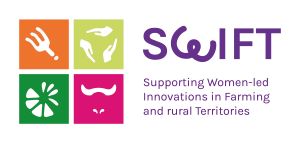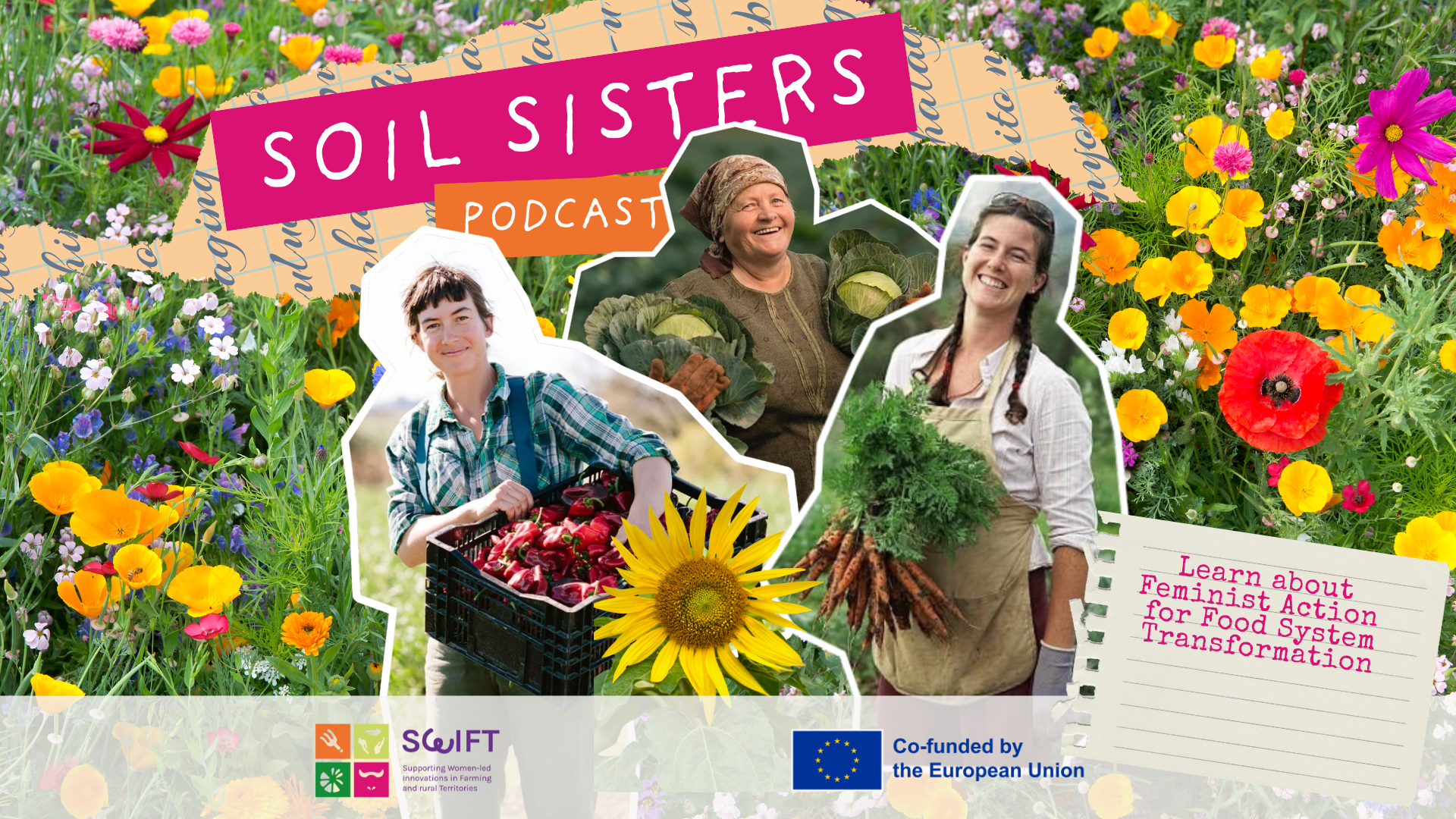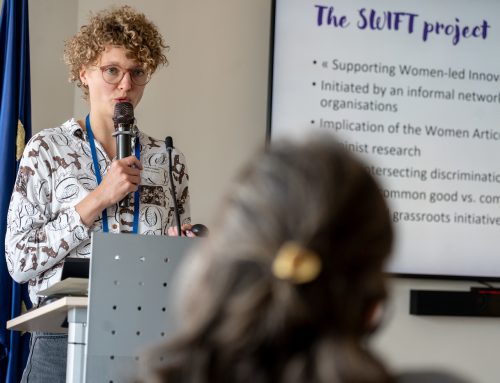Ahead of the International Day of Rural Women on 15 October, the SWIFT project has released the first four episodes in its collaboratively created podcast series ‘Soil Sisters: Towards Feminist Agroecological Futures in Europe‘. Soil Sisters explores complex issues including egalitarian access to land, seeds and credit, relationships of care for humans and the environment, the human rights of migrant agricultural workers, social security, agroecological education and training, political representation and the development of feminist agricultural organizations, policies and institutions. The series draws attention to the leadership of women and gender diverse peasants and farmers in the creation of policies and practices to support agroecology, food sovereignty, environmental protection, territorial markets, cultural memory, and collective organizing. Using conversations, interviews, life histories, music and poetry, Soil Sisters also emphasizes the importance of participatory action research and ‘rooted networks’ that bring together social movements, civil society, academics and policy-makers for the purposes of advancing feminist agroecology in Europe.
The series opens with a radio-style introductory conversation that introduces the SWIFT project, its origins and partners with a focus on the process of feminist participatory action research. Speakers discuss their engagement in SWIFT and its role as a platform to bring together actors from social movements, civil society and academia. From there, we travel to Bzvani in Georgia for episode two, where the “Laurel Women” braid myth, place, and an informal cooperative to build economic autonomy at home, even as some members of the community have migrated abroad to perform caring work. The gendered costs and the solidarities of transnational life and the connections between care for people and the environment are considered through life histories, stories and songs. In Poland, for episode three, farmers, activists, and researchers from different Eastern European Countries use a webinar format to exchange about their experiences of lack of institutional support and historical low social engagement for feminist agroecology in post-Soviet contexts. The discussants talk about the ways in which they strive to make agroecology tangible through shared practices, peer learning, and even a collectively composed feminist anthem. In episode four, migrant women working in Portugal and Spain speak about their lived realities of discrimination, precarity and the importance of organizing to resist oppressive power relations. This episode explores the ways in which agroecology and food sovereignty become tools to recalibrate power in fields, unions, and policy spaces.
The first four episodes in this series of eight center the agency of peasant and farmers feminist movements in promoting agroecological transitions. The podcasts also discuss the barriers to equality faced by women and gender diverse peasants and farmers in Europe and translate research into mobilizing stories and policy recommendations for the transformation of agri-food systems.
The Soil Sisters podcast has been co-created across borders with each episode produced by a different group of researchers and/or social movement actors. The participatory production process including: podcast training sessions, peer-to-peer reflection, and creative collaboration informs everything from the podcast’s sound identity to its multilingual and multi-voice format. The team was inspired by the transformative potential of podcasts to build community and democratize knowledge and experiences.




